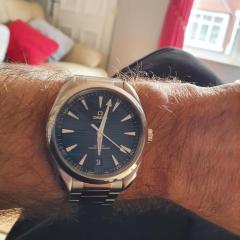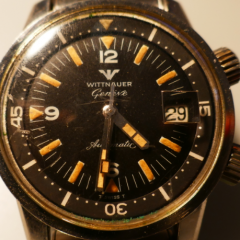Clock Oiling
-
Recently Browsing
- No registered users viewing this page.
-
Topics
-
Posts
-
If you look like your passport photo, you’re too ill to travel 😂 Tom
-
By LittleWatchShop · Posted
I have pondered such a plan. The unfortunate aspect of my 3d printing is accuracy. Not so great. So if I print something that works, I am almost guaranteed that the dimensions are not what was drawn. My purpose, even if inaccurate, was just to get a feel for the fit. I will look in to these service providers, though. Bear in mind, however, that part of the joy (if not all of it) is solving this myself. Otherwise, I just go mow the lawn or split wood or some other mundane task. -
By rjenkinsgb · Posted
I hardly have any of myself in the last few decades, though I do have my old passports etc. (with gradually degrading image quality; especially the last barely recognisable one, done in the Post Office dedicated licence & passport booth). Left to right, 1986 (at 30), 1997, 2007, 2018. Once the hair went, I've not really changed. My profile image is from 2001. -
By rjenkinsgb · Posted
You could get one 3D printed in stainless or titanium? Add the rest of the original detail to your existing model and proof check it comes out OK in plastic, then have it done by JLC, Shapeways etc. Not cheap, but you could get a lot closer the original appearance?
-







Recommended Posts
Join the conversation
You can post now and register later. If you have an account, sign in now to post with your account.
Note: Your post will require moderator approval before it will be visible.